Earth
Sign up for our newsletter
We summarize the week's scientific breakthroughs every Thursday.
-
 Climate
ClimateWhat’s causing this summer’s extreme heat waves?
Climate change and meandering jet streams are fomenting this summer’s extreme waves of heat.
By Nikk Ogasa -
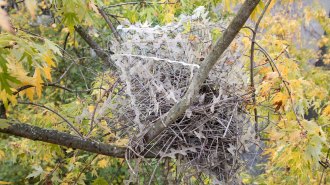 Animals
AnimalsIn a ‘perfect comeback,’ some birds use antibird spikes to build their nests
The spikes were meant to keep birds away. But five corvid nests in Europe use the bird-deterrents as structural support and to ward off predators.
-
 Climate
ClimateLast week was the hottest ever recorded — here’s why we keep smashing records
Global temperature records are being shattered as El Niño and climate change combine to push the Earth into uncharted territory, researchers say.
By Nikk Ogasa -
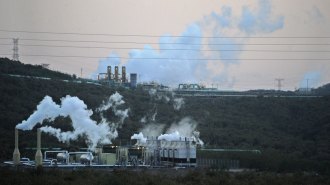 Earth
EarthHow Kenya is helping its neighbors develop geothermal energy
Renewable energy is crucial to halting climate change. In East Africa, the region’s geology makes geothermal energy a viable option.
-
 Earth
EarthWildfires aren’t going away. Here’s how smoke can affect your health
How does repeat exposure to wildfire smoke affect our health? Three experts weigh in on the massive air pollution fueled by Canada’s ongoing fires.
By Meghan Rosen -
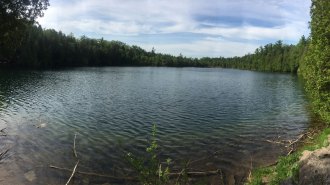 Climate
ClimateCanada’s Crawford Lake could mark the beginning of the Anthropocene
The mud of a Canadian lake holds an extremely precise record of humans’ influence on Earth. But the Anthropocene isn’t an official geologic epoch yet.
-
 Materials Science
Materials ScienceThis ‘thermal cloak’ keeps spaces from getting either too hot or cold
A new thermal fabric prototype could help keep cars, buildings and other spaces a comfortable temperature during heat waves while reducing CO₂ emissions.
By Skyler Ware -
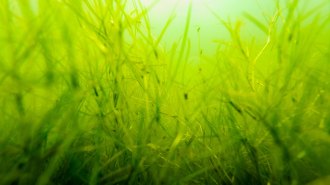 Ecosystems
EcosystemsThis seagrass is taking over the Chesapeake Bay. That’s good and bad news
Higher water temperatures are wiping out eelgrass in the Chesapeake Bay and weedy widgeongrass is expanding. Here’s why that seagrass change matters.
By John Carey -
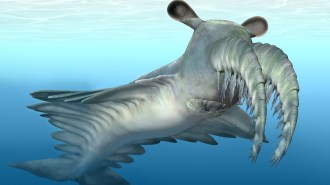 Paleontology
PaleontologyThis ancient, Lovecraftian apex predator chased and pierced soft prey
Half a billion years ago, Anomalocaris canadensis probably used its bizarre headgear to reach out and snag soft prey with its spiky clutches.
By Nikk Ogasa -
 Chemistry
ChemistryTear-resistant rubbery materials could pave the way for tougher tires
Adding easy-to-break molecular connectors surprisingly makes materials harder to tear and could one day reduce microplastic pollution from car tires.
By Skyler Ware -
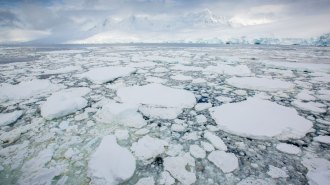 Climate
ClimateAntarctic sea ice has been hitting record lows for most of this year
Since hitting a record low minimum back in February, the amount of Antarctic sea ice has stayed well below normal all year.
-
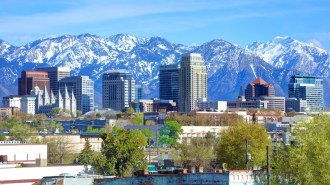 Environment
EnvironmentDust from a shrinking Great Salt Lake may be accelerating Utah’s snowmelt
About a quarter of the record-breaking, snow-melting dust on the Wasatch Mountains in 2022 may have come from exposed lakebed at Great Salt Lake.